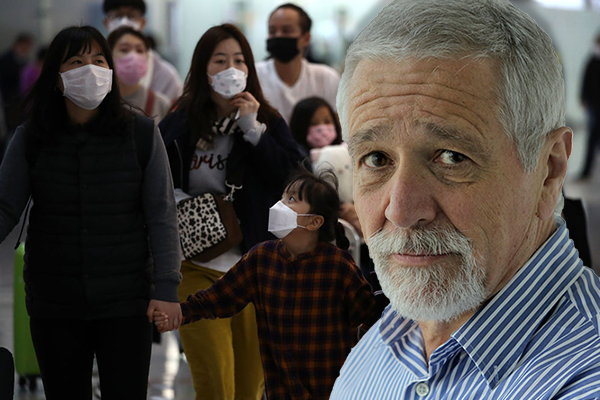‘Start treating us like adults’: Neil Mitchell slams lack of information on deadly coronavirus

Five Australian cases of coronavirus have been confirmed, and the deadly disease has already killed 81 people in China.
But Neil Mitchell says information around the virus, how bad the epidemic is, and what measures should be taken to prevent it spreading, is unreliable and inconsistent.
“If truth is the first casualty of war, as is said, truth is absolutely being massacred by this viral threat,” the 3AW Mornings host said.
Neil said information in Australia is deliberately vague.
“In Australia I think there are too many platitudes from the medical experts. I can see why but it isn’t reassuring,” he said.
“The health authorities need to get on to it here. Platitudes just build fears.
“They were too slow to tell the hospitals, they were too slow to tell GPs, even the schools were too slow.
“The authorities should have been shouting from the rooftops what was going on.
“They really do need to start treating us like adults. Trying to play things down only builds fear.”
Information coming from abroad is even more worrying.
“In China, well, heaven knows what’s happening,” Neil said.
“I’ve been reading material out of Hong Kong this morning. This has now been picked up by Time magazine. I’ve got no idea if it’s genuine or not, they seem to think it is.
“It purports to be from the dean of medicine at Hong Kong University.
“It says, effectively, China is hiding the truth. It says the total number of infections could be 44,000.”
The Chinese government’s official record of the virus reports the death toll at 81, and the total number of infections as about 3000.
“The problem is you can’t trust what’s coming out of China. Some of their official media is now suggesting it has all been engineered by Donald Trump, he’s somehow created the virus,” Neil said.
“There is a massive information gap here, and if you believe this Hong Kong material we could be looking at a potential global epidemic, but who would know?”
Press PLAY below for more.
Image (background): Chung Sung-Jun / Getty















